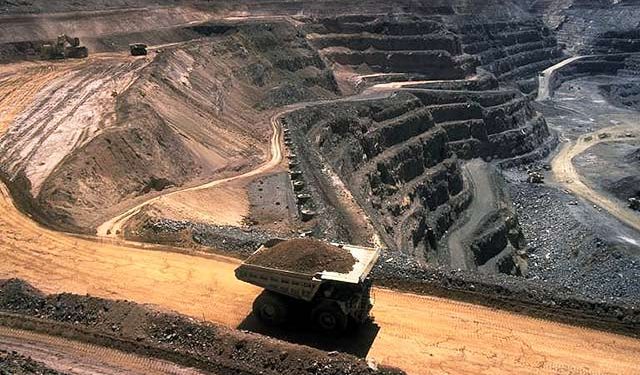New Delhi: BJP-ruled Madhya Pradesh and Rajasthan Wednesday supported the Centre’s demand in the Supreme Court for prospective implementation of its verdict on royalty and taxes on mines and minerals, saying they will adopt a ‘citizen-centric approach’, while Odisha government did not specify its clear stand on the retrospective or prospective effect of the apex court’s ruling. The JMM-led Jharkhand government, however, opposed the Centre’s demand and sought retrospective implementation of the July 25 verdict.
A nine-judge Constitution bench headed by Chief Justice DY Chandrachud reserved its orders on the issue of whether its July 25 verdict upholding the power of states to levy tax on mineral rights and mineral-bearing land should be given retrospective or prospective effect. In a significant verdict July 25, the bench, by a majority 8:1 verdict, had held that the legislative power to tax mineral rights vests with the states and the royalty paid on minerals is not a tax. The verdict had overruled a 1989 judgement in the case of India Cement versus Tamil Nadu, which held that only the Centre has power to impose royalty on minerals and mineral-bearing land. The bench also comprising justices Hrishikesh Roy, Abhay S Oka, BV Nagarathna, JB Pardiwala, Manoj Misra, Ujjal Bhuyan, Satish Chandra Sharma and Augustine George Masih was told by Solicitor General Tushar Mehta that “both Madhya Pradesh and Rajasthan has decided to adopt a citizen-centric approach and support the prospective implementation of the verdict”. He submitted making the July 25 verdict retrospective will have cascading effects on common citizens as companies will pass on the financial burden on them.
Senior advocate Rakesh Dwivedi, appearing for the Jharkhand government, batted for making the effect of July 25 judgement retrospective and said, “It may also be remembered that mineral-rich states are the poorest in the county and those challenging the imposition of tax are the richest companies in the country.” He said the states are in dire need of revenue to carry out their constitutional obligations as a welfare state and to uplift the poorest of poor – the tribals. Dwivedi added that the state’s Mineral Area Development Authority is facing a severe financial crisis and that it has neither been able to pay its employees for the last four years nor paid retiral-cum-death benefits to its former employees. “Due to the severe financial crisis, the authority is also unable to grant compassionate appointments. It has not even paid its electricity dues. The authority is struggling to stay afloat and carry out its functions as a development authority,” he said. Odisha government Advocate General Pitambar Acharya, however, did not specify any clear stand of the state government on the retrospective or prospective effect of the July 25 verdict and said the state was committed to the welfare of its people.
Senior advocate Vijay Hansaria, appearing for Shaktinagar Special Area Development Authority in Uttar Pradesh, also sought retrospective implementation of the July 25 verdict. Several senior advocates, including Harish Salve, Mukul Rohatgi, Abhishek Singhvi and Arvind Dattar, appearing for various organisations, including mining companies, supported the Centre for prospective implementation of the verdict. The Solicitor General said in India, 55 per cent of total commercial energy production is coal-reliant and 68 per cent of coal production is currently used in the generation of electricity. “An increase in the price of coal on account of state levies would have a cascading effect on the price of every commodity or service which uses power as an input, which is virtually every commodity or service,” he said. Mehta pointed out that the inflationary impact across the nation will be significant, which requires this court’s intervention by making the July 25 judgment prospective.






































